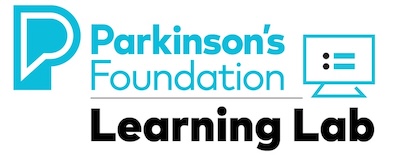Cognitive Behavioral Therapy for the Treatment of Depression in Parkinson's Disease
 While defined by the motor triad of tremor, rigidity, and bradykinesia, the neuropsychiatric features of Parkinson’s disease (PD) are common and functionally relevant.
While defined by the motor triad of tremor, rigidity, and bradykinesia, the neuropsychiatric features of Parkinson’s disease (PD) are common and functionally relevant.
Depression, in particular, is a key complication in the course and management of PD, but despite its severe consequences, it is widely overlooked and undertreated. In order to help bridge critical treatment gaps, this presentation will describe the importance of neuropsychiatric symptoms in PD, highlight key clinical considerations and treatment targets for the effective provision of psychotherapy to individuals with PD, and discuss recent research on the applications of Cognitive Behavioral Therapy (CBT) for the treatment of depression in PD.
Syllabus | |
Cognitive Behavioral Therapy for the Treatment of Depression in Parkinson's Disease Post-Knowledge Quiz Evaluation Credit and Certificate Claiming | |
Target Audience
This activity is designed to meet the educational needs of:
- Physicians
- Physician Assistants
- Registered Nurses
- Nurse Practitioners
- Social Workers
- Psychologists
Learning Objectives
At the end of this activity, learners will be able to:
- Describe the prevalence and impact of neuropsychiatric symptoms in Parkinson’s disease (PD);
- Explain key clinical considerations and treatment targets when providing psychotherapy to individuals with PD; and
- Discuss recent research on the use of Cognitive Behavioral Therapy for depression in PD (dPD) including:
- Efficacy data;
- Patterns of symptom change; and
- Telemedicine applications.
The Parkinson’s Foundation adheres to the ACCME’s Standards for Integrity and Independence in Accredited Continuing Education. Any individuals in a position to control the content of a CE activity, including faculty, planners, reviewers, or others are required to disclose all relevant financial relationships with ineligible entities (commercial interests). All relevant conflicts of interest have been mitigated prior to the commencement of the activity.
Roseanne Dobkin, PhD
Rebecca Miller, PhD
David Bertram, Psy.D.
Jennifer Koebert, MPAS, MPH, PA-C
Lee Neilson, MD
Jennifer Pickert, BSN, RN, EMTP
Christine Hunter, RN, BSN
Lisa Hoffman, MA
Lauren Krasucki, PT, DPT, MPH, CPH
 In support of improving patient care, Parkinson's Foundation is jointly accredited by the Accreditation Council for Continuing Medical Education (ACCME), the Accreditation Council for Pharmacy Education (ACPE), and the American Nurses Credentialing Center (ANCC) to provide continuing education for the healthcare team.
In support of improving patient care, Parkinson's Foundation is jointly accredited by the Accreditation Council for Continuing Medical Education (ACCME), the Accreditation Council for Pharmacy Education (ACPE), and the American Nurses Credentialing Center (ANCC) to provide continuing education for the healthcare team.
Physicians
Parkinson’s Foundation designates this activity for a maximum of 1.25 AMA PRA Category 1 Credit(s)™. Physicians should claim only the credit commensurate with the extent of their participation in the activity.
Physician Assistants

Parkinson’s Foundation has been authorized by the American Academy of PAs (AAPA) to award AAPA Category 1 CME credit for activities planned in accordance with AAPA CME Criteria. This activity is designated for 1.25 AAPA Category 1 CME credits. PAs should only claim credit commensurate with the extent of their participation.
Nurses
Parkinson's Foundation designates this enduring material for a maximum of 1.25 ANCC contact hours. Participants should claim only the credit commensurate with the extent of their participation in the activity.
Social Workers
 As a Jointly Accredited Organization, Parkinson’s Foundation is approved to offer social work continuing education by the Association of Social Work Boards (ASWB) Approved Continuing Education (ACE) program. Organizations, not individual courses, are approved under this program. State and provincial regulatory boards have the final authority to determine whether an individual course may be accepted for continuing education credit. Parkinson’s Foundation maintains responsibility for this course. Social workers completing this course receive 1.25 ASWB continuing education credits.
As a Jointly Accredited Organization, Parkinson’s Foundation is approved to offer social work continuing education by the Association of Social Work Boards (ASWB) Approved Continuing Education (ACE) program. Organizations, not individual courses, are approved under this program. State and provincial regulatory boards have the final authority to determine whether an individual course may be accepted for continuing education credit. Parkinson’s Foundation maintains responsibility for this course. Social workers completing this course receive 1.25 ASWB continuing education credits.
Psychologists
 Continuing Education (CE) credits for psychologists are provided through the co-sponsorship of the American Psychological Association (APA) Office of Continuing Education in Psychology (CEP). The APA CEP Office maintains responsibility for the content of the programs. 1.25 CE hour.
Continuing Education (CE) credits for psychologists are provided through the co-sponsorship of the American Psychological Association (APA) Office of Continuing Education in Psychology (CEP). The APA CEP Office maintains responsibility for the content of the programs. 1.25 CE hour.
Available Credit
- 1.25 AAPA Category I CME
- 1.25 AMA PRA Category 1 Credit™
- 1.25 ANCC
- 1.25 APA
- 1.25 ASWB ACE
- 1.25 Participation

 Facebook
Facebook X
X LinkedIn
LinkedIn Forward
Forward